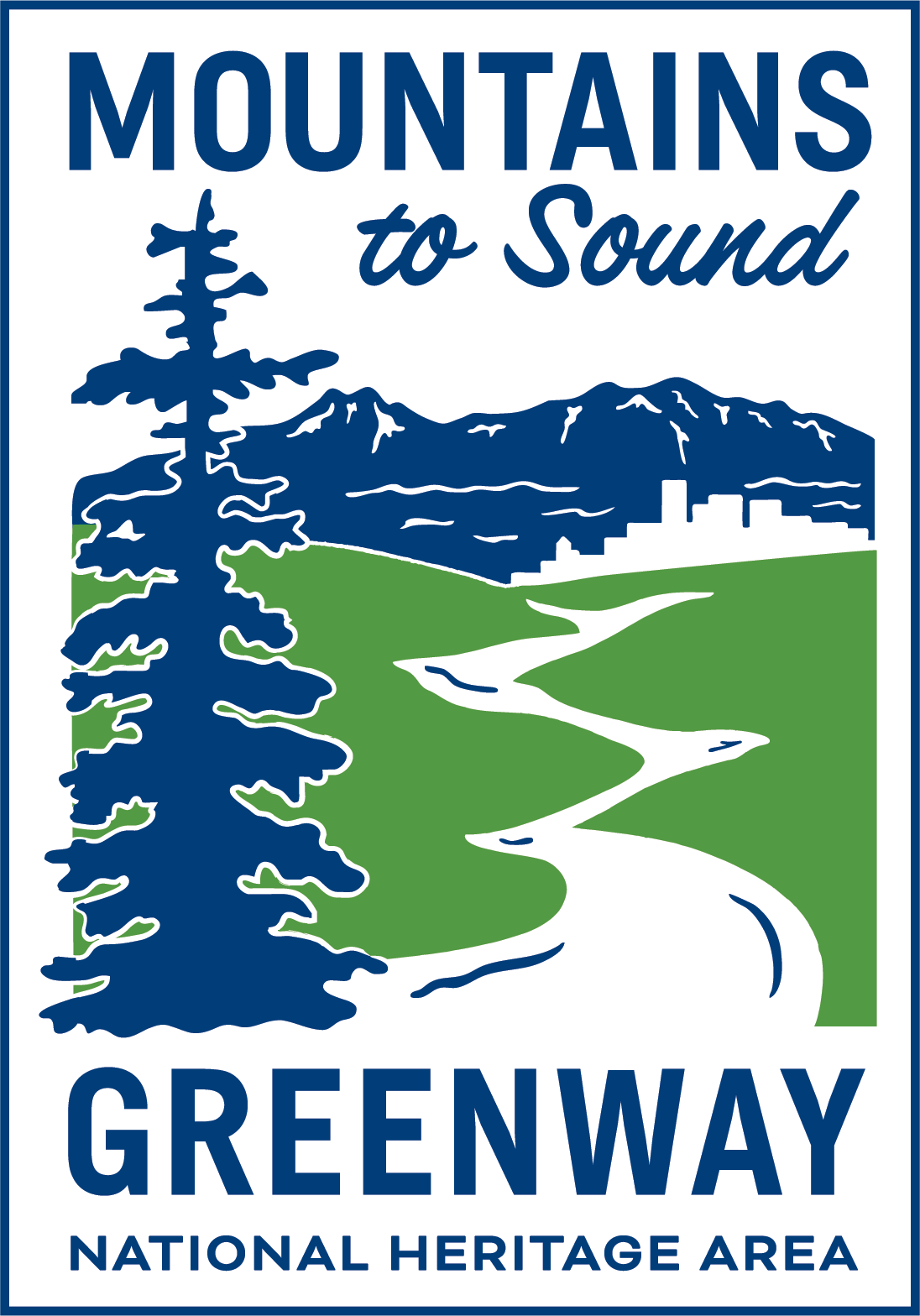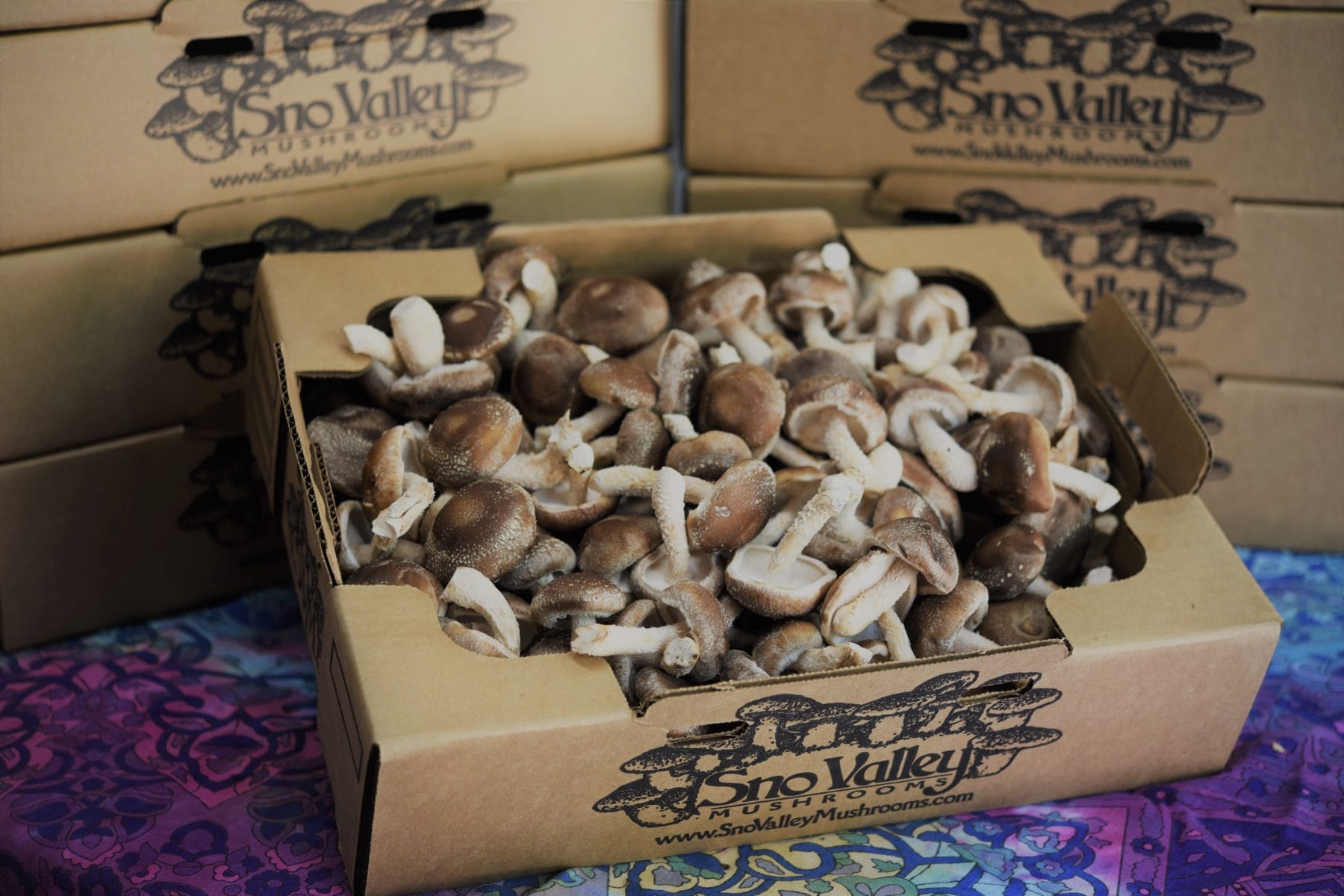Aspiring Chefs Tour and Taste the Valley
All mushrooms are not created equal. Many of the foraged variety, in fact, can turn out to be quite toxic to the untrained eye. Identifying what could be a tree oyster growing on a stump or an imposter that looks just too good to be true, is a honed skill. The mysteriousness that shrouds mushrooms leads many people to mainstream grocery stores for mainstream button mushrooms that slice nicely but are light on flavor.
The Snoqualmie River Valley is home to a thriving small farm that is looking to change all this, or at least, what kind of mushrooms end up on local restaurant menus and in your own homecooked dish. And they are one of several farms who opened their doors this summer to aspiring culinary students to highlight why it matters where your food comes from and how it’s grown. This knowledge transfer has the power to reshape the Seattle-area restaurant and farming scene and strengthen our regional economy. Sno-Valley Mushrooms, based in Duvall, is making a name for itself as a thriving source of locally grown “lignivorous” (wood eating) mushrooms –ones that can be found naturally growing on trees, logs, stumps, or woody debris. Replicating this natural process, however, even in a small-operation farm setting can prove to be a microbiological challenge with a number of biosecurity measures that are critical to the quality of the product. Public tours at Sno-Valley Mushrooms are not generally offered because of these tight protocols. But last week they opened their doors for a special guided tour for culinary students to learn what it means to support sustainable farming in the Snoqualmie Valley.
Making these boots-on-the-ground learning opportunities more accessible for aspiring chefs is well worth the effort. The long-term balance of farming in the Snoqualmie Valley has a collective impact on the preservation of forests, fish and wildlife, tourism, and recreation throughout the Mountains to Sound Greenway. Addressing this need at the root, the Mountains to Sound Greenway Trust worked with the Lake Washington Institute of Technology to develop the now annual ‘Chef to Farm’ program to connect culinary students and chefs to local farms in the Valley. Now in its fourth year, this class is producing the next generation of chefs who care about where their food comes from and how it’s grown. The objective of their weekly tours is to take what they’re learning in the classroom and apply it to what they see out-in-the-field, and in this case, solving some of the mysteriousness of growing gourmet mushrooms.
As the students walked single file into a temperature regulated walk-in storage unit staged with towering racks of blooming fungi, the curious questions turned into a lively dialogue between the farmer and students. It’s this kind of first-hand interaction that often inspires a culinary student’s passion to source and support locally grown food from the very beginning of their careers. It can also be a taste or smell of a niche ingredient that drives a chef to seek a local source, looking for optimal freshness and a higher quality product. Mainstream mushrooms are harvested nearly four weeks before they ever hit grocery store shelves. Sno-Valley Mushrooms, on the other hand, picks at precise harvest intervals to distribute to restaurant customers and sell direct at local markets in the same week. Behind the scenes, Sno-Valley Mushroom cultivates their fungi on a red alder sawdust that is supplemented with organic grains and hydrated with water from the creek adjacent to their farm. The sawdust itself is sourced from sawmills right here in Western Washington – it doesn’t get any more local or fresh than that.
Grabbing one of the take-home bags of shiitake mushrooms included in the tour, a culinary student shared that he wanted to go back to his family pizza restaurant, local to the Valley, and see if they could try something different with these gourmet mushrooms. It’s exactly this kind of dialogue that will help plant the seeds of sustainability throughout the Valley with each connection made between budding chefs and local farms. The Greenway Trust is excited to see the Chef to Farm program continue to create these new learning experiences and to help build a greater awareness for the important role of our local farms.
Discover the taste of Sno-Valley Mushrooms at one of these local spots:
Grange Cafe, Duvall
Flavour Bistro, Duvall
Duvall Grill
Oxbow Farm Summer CSA
Snoqualmie Valley Farmers Cooperative CSA
Local farms participating in this summer’s Chef to Farm program:
Cherry Valley Dairy
Urban Bee Co.
Sno-Valley Mushrooms
Carnation Farms
K-T Cattle Co.
The Chef to Farm program is a Lake Washington Institute of Technology class offered in the summer for students to learn about important food issues starting at the very beginning of their career.
Want to learn more about our work in the Snoqualmie Valley? Sign up for our quarterly E-News.





